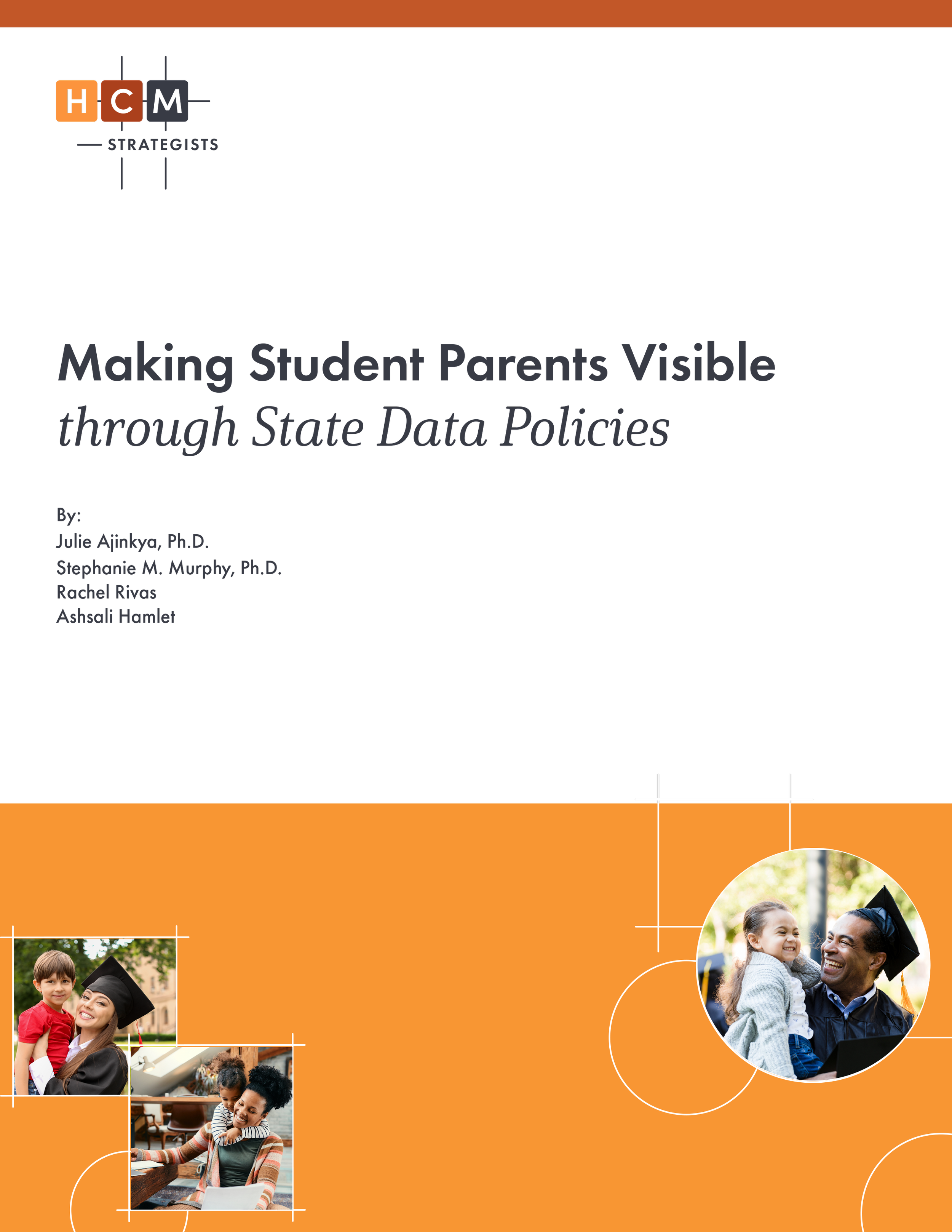New Research Brief: Making Student Parents Visible through State Data Policies
In recognition of National Student Parent Month, we are excited to share the release of our new policy brief: Making Student Parents Visible through State Data Policies.
More than one in five college students are also parents. Yet, higher education systems—most of which were never designed with their needs in mind—remain ill-equipped to support them. Student parents face unique and compounding barriers such as the high cost of childcare, food and housing insecurity, and the need to balance work and studies. Research shows that when institutions provide targeted supports, student parents succeed academically and achieve critical economic mobility for themselves and their families.
The first step toward providing that support is knowing who these students are. Currently, no federal mandate requires student parent data collection, and only a handful of states have passed legislation to do so. HCM’s latest brief provides a landscape analysis of emerging state-level efforts to systematically collect student parent data, drawing on legislative review and interviews with stakeholders in California, Illinois, Minnesota, Oregon, Texas, and Maryland.
The brief offers actionable recommendations for policymakers, institutions, advocacy organizations, and state agencies and coordinating boards to strengthen data collection and translate legislation into meaningful, student-centered change.
Key Findings:
Strong, Coordinated Coalitions Drive Policy Wins: Successful legislative efforts were consistently driven by cross-sector coalitions that included student parents, advocates, researchers, and, in some cases, ideologically diverse groups like veterans’ organizations or pro-life groups. This broad support was key to navigating politically sensitive environments.
Student Voice Accelerates Impact: Involving student parents as co-creators and leaders in advocacy efforts, rather than just informants, leads to more relevant, impactful and learner-centered solutions. Compensating them for their time is critical to their participation.
Data Collection is Complex and Must Be Intentional: States are increasingly recognizing that robust data on student parents is a necessary first step for effective policy and practice. However, implementation is complex and requires thoughtful collaboration with early stakeholder input from advocates, institutional researchers, and student parents themselves.
Legislative Strategy Must Be Tailored: Effective strategies included tailoring messaging to local political contexts (e.g. supporting family values or economic justice), leveraging bipartisan support, and finding legislative champions.
Institutional Implementation Matters: Legislative mandates alone are not enough. Institutions require clear guidance, technical assistance, and tools to effectively implement new policies, especially around data collection and campus support roles.


